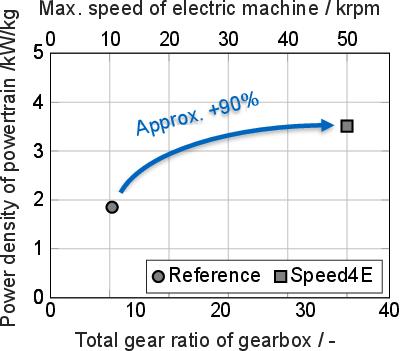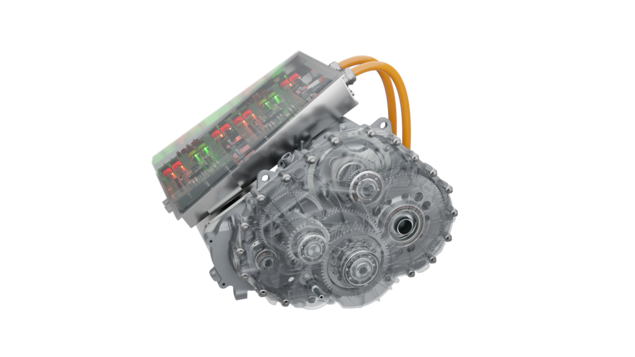Drive Systems / Electromechanical Drives
The demand for environmentally friendly and sustainable mobility is pushing the current development of innovative drive systems. Electromechanical drive systems for plug-in hybrid and battery electric vehicles are proving to be a promising solution for meeting this demand. In a world in which environmentally friendly mobility is becoming increasingly important, optimized powertrains could lead the way for sustainable and future-oriented mobility.
The FZG has been conducting intensive research in the field of hybrid and electric drives since 1993. The focus is on the design and simulation of these powertrains, as well as their implementation in real vehicle prototypes. Special simulation tools have been worked out for the development of alternative drive systems in order to evaluate the properties of the drive concepts. The main objective of the overall vehicle simulations is to determine energy consumption and driving dynamics under different driving cycles and maneuvers. In order to meet the requirements of concept studies, numerous configurations and parameters have to be coordinated. This requires high demands on the computing time of the simulation models. Nevertheless, a high degree of flexibility and expandability is required in order to adapt the vehicle models in detail for further analyses.
In addition, compact, powerful, high-speed drives can be used to achieve maximum ranges. Increasing the drive speed can lead to an increase in the power density of the entire electromechanical drivetrain. In the consecutive joint projects Speed2E and Speed4E, the maximum speed was increased from a reference design with 11,000 rpm up to 50,000 rpm at the gearbox input. This made it possible to increase the power density by around 90 % and enable real drives with speeds far above the state of the art.
Highlights of these projects are the resulting Speed2E and Speed4E multi-speed super-high-speed drivetrains for electric vehicles with speeds at the transmission input of up to 30,000 rpm and up to 50,000 rpm respectively. Both drivetrains feature a double-E architecture with two sub-transmissions and an efficiency- and excitation-optimized operating strategy.
Based on these findings, the joint project Opt4E aims to develop methods and tools for the comprehensive synthesis and optimization of powertrains for electric vehicles. With the help of the resulting development platform, promising powertrain topologies can be created, evaluated and compared at an early stage.



